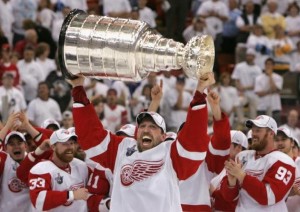The Rise of the Entrepreneur
December 6th, 2012In Winning the Story Wars, Jonah Sachs suggests that the broadcast model of marketing is coming to an end and we’re seeing a return of the oral tradition:
“the oral tradition that dominated human experience for all but the last few hundred years is returning with a vengence. It’s a monumental, epoch-making, totally unforeseen turn of events.”
The point being this is not something new but rather an undoing of this short lived experiment with the broadcast model. I often use the line, if it’s less than 100 years old then it’s an experiment and the broadcast tradition fits that.
In the broadcast model, the Gutenberg press was one of many elite devices that controlled access in this model:
“In this model, information begins life in the mind of its creator but quickly makes the jump into a machine that relatively few people have access to. Because these machines – letterpresses, radio transmitters, TV cameras – are expensive, access to them is exclusive. This means an elite gatekeeper gets to decide which ideas are allowed in and which die a quick, merciless death.”
 Jonah’s analogy applies equally to this entrepreneurial revolution that most of us feel we’ve entered. This revolution isn’t something new, it’s an undoing of the major parts of another experiment called the industrial revolution. As with the Gutenberg press, the industrial revolution created many elite gatekeepers, such as large corporations. They decided which ideas were allowed to go to market and which died quick deaths. As Youngme Moon discusses in her book Different, great ideas are indistinguishable from insane ones in their early days and they often need protection to survive.
Jonah’s analogy applies equally to this entrepreneurial revolution that most of us feel we’ve entered. This revolution isn’t something new, it’s an undoing of the major parts of another experiment called the industrial revolution. As with the Gutenberg press, the industrial revolution created many elite gatekeepers, such as large corporations. They decided which ideas were allowed to go to market and which died quick deaths. As Youngme Moon discusses in her book Different, great ideas are indistinguishable from insane ones in their early days and they often need protection to survive.
While this revolution is well underway in software, movements like 3D printing and scanning are driving this disruption into every industry. In the entrepreneurial revolution, elite devices lose the power to squash potential new businesses. New businesses will live or die not unlike memes and genes:
“In the natural world, memes, or ideas, must ensure their survival by exciting listeners to keep passing them along, carrying the same core message in a chain of transmission.”
Here’s the rub, as we rapidly remove existing elite gatekeepers we need to be very cautious about inserting news ones. Creating a new business isn’t a beauty contest. With the rise of incubators, accelerators, angel investment groups, pitch contests, innovation centers, etc we cannot allow these to become the new gatekeepers with the power to decide which businesses live and die. In the same way no good joke survives a committee of six, these gatekeepers need to be minimized or kept out.
On the other side, most of us grew up watching our fathers work at the same company for 43 years while we spent decades in a school system where we succeeded as long as our prof loved us. Those experiences left some of us with the instinct to look to these elite devices for validation. Is my idea good? Am I allowed to build a business around this? Do you like it?
As always, I don’t have any answers but I’m more excited everyday to watch the rise of the entrepreneur! Our weekly Founder’s Club meetings at ThreeFortyNine are heavily inspired by these ideas. Our meetings are like group therapy for those of us crazy enough to try creating something out of nothing. We support each other, help each of us get better, provide feedback etc but we aren’t here to validate or decide if your business gets to live or die.
A recent success that a friend shared with me that’s a brilliant example of this disruption at work:









